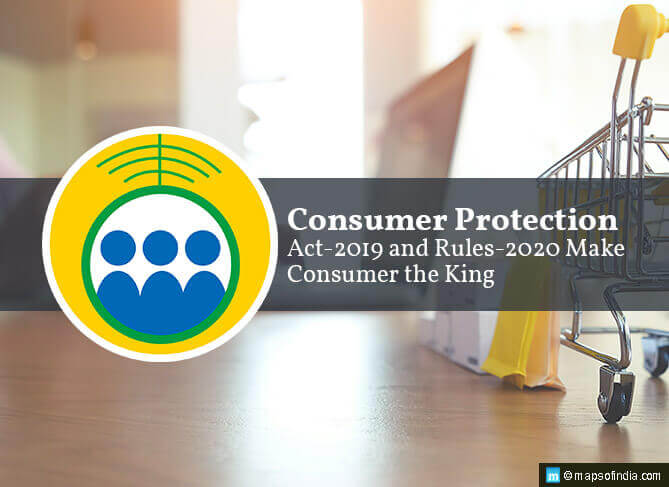
Philip Kotler, the father of modern marketing, defined the Customer as King. The same applies now with the introduction of recently introduced Consumer Protection Act, 2019, and the recently introduced rules in July 2020, namely- The Consumer Protection (E-Commerce) Rules, 2020. The Ministry of Consumer Affairs, Food, and Public Distribution has issued a notification by which it appoints July 20, 2020, as the date on which the Consumer Protection Act, 2019, shall come into force. The Act and rules are going to be strict and cover the e-commerce operators with sound practices being enforced and stronger compliance.
Coverage and new things in place:
1. The entities being the electronic retailers – will be required to do a mandatory display of ‘country of origin’ on their products and face penal action for any non-compliance of the new rules. It is going to be helpful to the people who want to boycott Chinese products.
2. Scope – ‘Consumer Protection (E-Commerce) Rules, 2020’ will apply to all electronic retailers (e-retailers) registered in India or abroad but offering goods and services to Indian consumers. The Indian consumers may (because of this) mean the customer is within the Indian boundaries.
3. As per the rules which have got acceptance in July-2020, the e-commerce players who are operating in India will now mandatorily have to display the total ‘price’ of goods and services offered for sale along with now mandatory disclosure of the breakup of other charges. Though prices were earlier there, the breakup was missing to some extent.
4. Under this Act, now every e-commerce entity shall be required to provide all-important (from the consumer perspective) information relating to the following:
a) Return of the product – How can that be done?,
b) Refund process – If in case, anyone wishes.,
c) Exchange system – Change due to size or colours or any other reason.,
d) Warranty and Guarantee – If there with the products, coverage shall be limited to only those items having it.,
e) Delivery and shipment,
f) Modes of payment being available,
g) If you have any grievance redresses mechanism.,
h) Payment methods,
i) Security of payment methods,
j) Charge-back options, etc.
These all are necessary for enabling the consumer to make an informed decision at the pre-purchase stage on its platform.
5. The rules will not permit any e-commerce entity- including single-brand retailers and multi-channel single-brand retailers, to “falsely represent itself “as a consumer and post reviews about goods and services or misrepresents the quality or the features of any products and services. However, it is going to be tough to check as it is standard practice to get better ratings.
Tougher challenges ahead:
The tougher challenge shall be that all these e-commerce platforms will have to acknowledge the acceptance/receipt of any (any covers all) consumer complaint within forty-eight hours (no working day period defined). Moreover, they must redress the claim within one month from the date of receipt under this Act. It talks about 48 hours, which also includes Saturdays and Sundays since it does not mention working days. It is going to be very tough upon e-commerce operators in the times to come.
Other broader implications in the Act include:
- The Act has introduced the concept of product liability. The Product Liability is a broader concept and brings within its scope, the product manufacturer, product service provider, and product seller, for any compensation claim. It is going to have broader ramifications and more work for lawyers as well.
- The Act also provides for stricter punishment by the competent courts under the Act for manufacture or sale of adulterant goods. The court, as provided in the Act and rules, may, in the case of the first conviction, revoke the license issued to the person for a period of max up to two years, and in case of the second or subsequent conviction, cancel the license as well.
Conclusion:
In the tough COVID times, it will not be wrong to say that the only business which was working was the e-retail business. It will also not be wrong to say that it is a tough business to remain in such a market and make handsome profits. It is a tough game, and with such acts now in place, it’s going to be tougher as well. So before entering the game in e-business, better be prepared.





